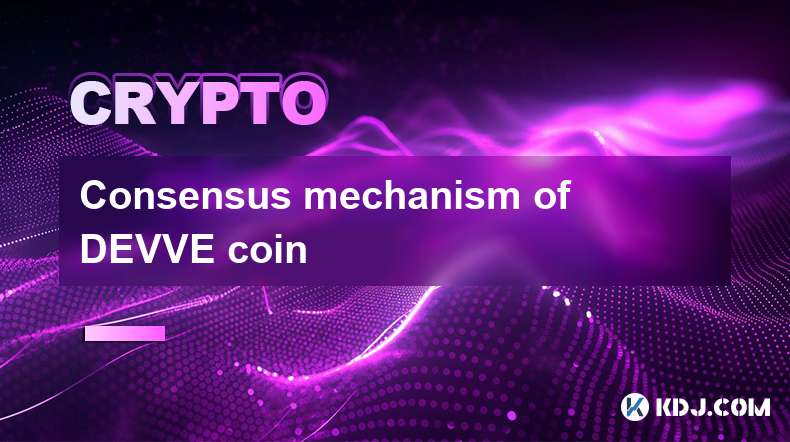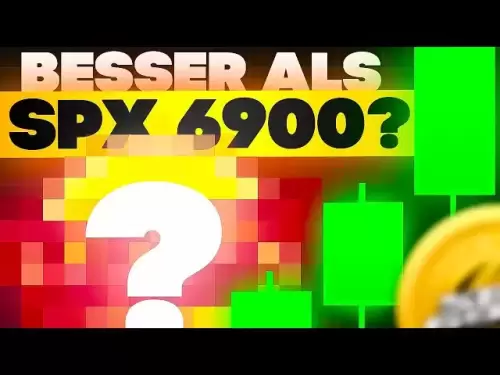-
 Bitcoin
Bitcoin $109,172.8137
0.38% -
 Ethereum
Ethereum $2,658.3912
1.88% -
 Tether USDt
Tether USDt $1.0000
0.00% -
 XRP
XRP $2.3797
3.33% -
 BNB
BNB $662.4084
0.26% -
 Solana
Solana $153.4873
1.09% -
 USDC
USDC $0.9999
-0.03% -
 TRON
TRON $0.2892
1.08% -
 Dogecoin
Dogecoin $0.1727
0.88% -
 Cardano
Cardano $0.6071
3.19% -
 Hyperliquid
Hyperliquid $39.6726
3.01% -
 Sui
Sui $2.9490
0.91% -
 Bitcoin Cash
Bitcoin Cash $504.1242
0.19% -
 Chainlink
Chainlink $13.9579
1.40% -
 Stellar
Stellar $0.2894
12.13% -
 UNUS SED LEO
UNUS SED LEO $9.0366
-0.42% -
 Avalanche
Avalanche $18.5386
1.26% -
 Hedera
Hedera $0.1698
5.36% -
 Shiba Inu
Shiba Inu $0.0...01211
1.76% -
 Toncoin
Toncoin $2.8140
1.36% -
 Litecoin
Litecoin $88.5278
1.45% -
 Monero
Monero $318.9246
1.63% -
 Polkadot
Polkadot $3.5204
2.37% -
 Dai
Dai $1.0000
0.00% -
 Ethena USDe
Ethena USDe $1.0008
0.07% -
 Uniswap
Uniswap $8.1741
5.45% -
 Bitget Token
Bitget Token $4.3516
0.94% -
 Aave
Aave $296.0756
1.87% -
 Pepe
Pepe $0.0...01026
0.49% -
 Pi
Pi $0.4619
0.07%
Consensus mechanism of DEVVE coin
DEVVE coin's Proof of Voting (PoV) consensus mechanism enables efficient transaction processing, security, and energy conservation by allowing holders to participate in validator selection through voting.
Dec 27, 2024 at 11:19 pm

Consensus Mechanism of DEVVE Coin
The DEVVE coin is a cryptocurrency that utilizes a unique consensus mechanism known as the Proof of Voting (PoV) algorithm. This mechanism aims to provide a more efficient and energy-efficient alternative to traditional consensus algorithms such as Proof of Work (PoW) and Proof of Stake (PoS).
Key Points
- DEVVE coin employs a Proof of Voting (PoV) consensus mechanism.
- PoV allows DEVVE holders to participate in the validation process.
- DEVVE's consensus mechanism enables fast and efficient transaction processing.
- The PoV algorithm is highly secure and prevents malicious activities.
Detailed Explanation
Proof of Voting (PoV) Consensus Mechanism
Unlike PoW and PoS, which rely on computational power or staking, respectively, PoV allows DEVVE coin holders to participate in the consensus process by casting votes. The votes are used to select validators who are responsible for verifying and adding new transactions to the blockchain.
Validator Selection
DEVVE coin holders have the opportunity to vote for validators who meet specific criteria, such as having a certain number of DEVVE coins in their wallets and maintaining a positive reputation. The voting process is designed to ensure that the most reputable and technically capable validators are chosen.
Transaction Validation
Selected validators are responsible for proposing new blocks to the blockchain. Once a block is proposed, other validators verify the validity of the transactions included in the block. If a majority of validators approve the block, it is added to the blockchain and the transactions are considered confirmed.
Advantages of PoV
- High Energy Efficiency: PoV consumes significantly less energy compared to PoW, making it a more environmentally friendly consensus mechanism.
- Fast Transaction Processing: The PoV algorithm allows for quick and efficient transaction validation, reducing the time it takes for transactions to be processed and confirmed.
- Enhanced Security: The voting process and validator selection criteria ensure that validators are trustworthy and reputable, minimizing the risk of malicious activities.
Comparison to Other Consensus Mechanisms
| Consensus Mechanism | Description | Advantages | Disadvantages |
|---|---|---|---|
| Proof of Work (PoW) | Computational power-based | Secure, decentralized | Energy-intensive |
| Proof of Stake (PoS) | Staking-based | Energy-efficient, fast | Less decentralized |
| Proof of Voting (PoV) | Voting-based | Energy-efficient, fast, enhanced security | Requires coin holding |
FAQs
1. Which consensus mechanism does DEVVE coin use?
DEVVE coin utilizes the Proof of Voting (PoV) consensus mechanism.
2. How do DEVVE holders participate in the consensus process?
DEVVE holders can vote for validators who are responsible for validating and adding transactions to the blockchain.
3. What are the benefits of the PoV consensus mechanism in DEVVE coin?
The PoV consensus mechanism provides high energy efficiency, fast transaction processing, and enhanced security.
Disclaimer:info@kdj.com
The information provided is not trading advice. kdj.com does not assume any responsibility for any investments made based on the information provided in this article. Cryptocurrencies are highly volatile and it is highly recommended that you invest with caution after thorough research!
If you believe that the content used on this website infringes your copyright, please contact us immediately (info@kdj.com) and we will delete it promptly.
- NEXBRIDGE, NEXPLACE, and the Bitcoin Ecosystem: Building a New Financial Frontier
- 2025-07-09 23:10:13
- MEXC Launchpad & PUMP Token: Grab a 40% Discount?
- 2025-07-09 22:50:12
- Trade System Revolution: How XDC and the End of Faxes Are Reshaping Finance
- 2025-07-09 23:10:13
- Ripple, CLARITY Act, and the XRP Case: A New York Minute on Crypto Regulation
- 2025-07-09 23:50:12
- No Rs 50 Coin? Delhi HC Hears Why India Prefers Banknotes
- 2025-07-09 23:15:11
- No Rs 50 Coin? Delhi HC Hears Why Banknotes Reign Supreme
- 2025-07-09 23:50:12
Related knowledge

How to customize USDT TRC20 mining fees? Flexible adjustment tutorial
Jun 13,2025 at 01:42am
<h3>Understanding USDT TRC20 Mining Fees</h3><p>Mining fees on the TRON (TRC20) network are essential for processing transactions. U...

USDT TRC20 transaction is stuck? Solution summary
Jun 14,2025 at 11:15pm
<h3>Understanding USDT TRC20 Transactions</h3><p>When users mention that a USDT TRC20 transaction is stuck, they typically refer to ...

How to cancel USDT TRC20 unconfirmed transactions? Operation guide
Jun 13,2025 at 11:01pm
<h3>Understanding USDT TRC20 Unconfirmed Transactions</h3><p>When dealing with USDT TRC20 transactions, it’s crucial to understand w...

How to check USDT TRC20 balance? Introduction to multiple query methods
Jun 21,2025 at 02:42am
<h3>Understanding USDT TRC20 and Its Importance</h3><p>USDT (Tether) is one of the most widely used stablecoins in the cryptocurrenc...

What to do if USDT TRC20 transfers are congested? Speed up trading skills
Jun 13,2025 at 09:56am
<h3>Understanding USDT TRC20 Transfer Congestion</h3><p>When transferring USDT TRC20, users may occasionally experience delays or co...

The relationship between USDT TRC20 and TRON chain: technical background analysis
Jun 12,2025 at 01:28pm
<h3>What is USDT TRC20?</h3><p>USDT TRC20 refers to the Tether (USDT) token issued on the TRON blockchain using the TRC-20 standard....

How to customize USDT TRC20 mining fees? Flexible adjustment tutorial
Jun 13,2025 at 01:42am
<h3>Understanding USDT TRC20 Mining Fees</h3><p>Mining fees on the TRON (TRC20) network are essential for processing transactions. U...

USDT TRC20 transaction is stuck? Solution summary
Jun 14,2025 at 11:15pm
<h3>Understanding USDT TRC20 Transactions</h3><p>When users mention that a USDT TRC20 transaction is stuck, they typically refer to ...

How to cancel USDT TRC20 unconfirmed transactions? Operation guide
Jun 13,2025 at 11:01pm
<h3>Understanding USDT TRC20 Unconfirmed Transactions</h3><p>When dealing with USDT TRC20 transactions, it’s crucial to understand w...

How to check USDT TRC20 balance? Introduction to multiple query methods
Jun 21,2025 at 02:42am
<h3>Understanding USDT TRC20 and Its Importance</h3><p>USDT (Tether) is one of the most widely used stablecoins in the cryptocurrenc...

What to do if USDT TRC20 transfers are congested? Speed up trading skills
Jun 13,2025 at 09:56am
<h3>Understanding USDT TRC20 Transfer Congestion</h3><p>When transferring USDT TRC20, users may occasionally experience delays or co...

The relationship between USDT TRC20 and TRON chain: technical background analysis
Jun 12,2025 at 01:28pm
<h3>What is USDT TRC20?</h3><p>USDT TRC20 refers to the Tether (USDT) token issued on the TRON blockchain using the TRC-20 standard....
See all articles

























































































